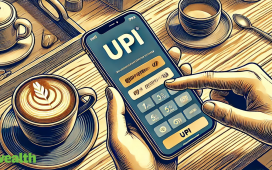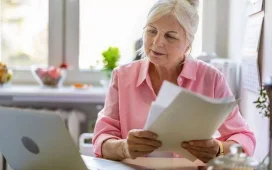What are your strongest memories of the 1p coin, and its bigger cousin, the 2p piece? For me it’s childhood, and carrying fists full of coppers to the corner shop where the shopkeeper would let me make my own 20p bag of pick ’n’ mix known as a “mix up”. “Sherbet straws are 5p, not a penny,” he would remind me (an early lesson in budgeting), because straws were my fave. Those and the chocolate “cigarettes”: sticks of chocolate covered in rice paper, fished out from fake fag packs and held between our index and middle fingers as we nibbled – pretending we were taking puffs. If we couldn’t afford a pack of chocolate ciggies, he would let us buy one for the mix up for 3p, a mark up on their 2p in-box value simply because he could (an early lesson on capitalism).
For clarity, these memories of children play-smoking for pennies are from the late 1990s, not the 50s – which, I admit, is how they sound. Chances are your 1p and 2p memories sound as if they are from another era too, and soon they could be.
That’s because this year the Treasury ordered no new coins to be minted for circulation, prompting concern that 1ps and 2ps could join the shilling and the £1 banknote and be permanently scrapped. The Treasury denied this, saying it was confident there were already “enough coins in the system” (that is, in shop tills, banks and households) to cope with any cash payments that require these coins, amid an overall decline in cash payments.
But it has not been enough to stem the public conversation about a Britain without its pennies. For some, getting rid will simply be more convenient. No more awkward conversations about change at the shop, or pockets being for ever weighed down. For others, it represents a society changing for the worse. After all, a cashless economy will hit the most vulnerable the hardest, and our duty to them shouldn’t be sacrificed in pursuit of efficiency.
But mostly it has been an excuse to reminisce. Stories of first money boxes and how perfectly a 2p fits in a child’s hand. Or of the pier-side coin pusher and the joyful anticipation when your penny drops (side note: no currency features as prominently in language as the penny: pennies dropping, pennies in for a pound, pennies found and picked up for luck, etc). Or the deep disappointment at the supermarket coin changer after deadlifting what feels like a metric ton of coins to the machine only to tip them out and oh, £4.07.
Of all the losses associated with the demise of the coppers – a loss of simplicity, a loss of small joys – the one I feel most keenly is the loss of a bargain, or rather the feeling of having got one. Pennies are uniquely tied up with it. Consider the annoying 99p price strategy, designed to make us feel as if we’re paying less than we are; that we’ve got a great deal when we hand over, say, a fiver, and get something back. Sure, it’s all marketing, but at a time when prices are going up and up and the notion of “thresholds” – prices that are understood to be the maximum an average consumer will pay, never to be passed – seems to have died a death, I do yearn for that old feeling.
Admittedly, whether 1ps and 2ps remain has little to do with it – something is cheap or extortionate whether paid for in cash or card – though we know now that the phrase “the Tories left us penniless” could have a literal meaning too. But one thing is for sure: it is hard to imagine card payments ever provoking such strong emotions and memories as pennies, and that in 30 years there will be an equivalent outpouring for chip and pin (“Ho ho ho, wasn’t it funny when we used the same pin for all our cards instead of retina scans?”)
In the meantime, though, pennies are still accepted, and I have at least 50 scattered among my handbags and that unknowable drawer full of random cables. So perhaps it’s time for us all to dig them out, if not to give a penny for a thought, then to give a thought to the penny.











